Contact Yecla Tourist Office
Click Here
To contact Jumilla Tourist office please use the secure enquiry form provided below.
Contact Yecla Tourist Office on +34 968 75 41 04
Contact Yecla Tourist Office
Click Here
To contact Jumilla Tourist office please use the secure enquiry form provided below.
Contact Yecla Tourist Office on +34 968 75 41 04


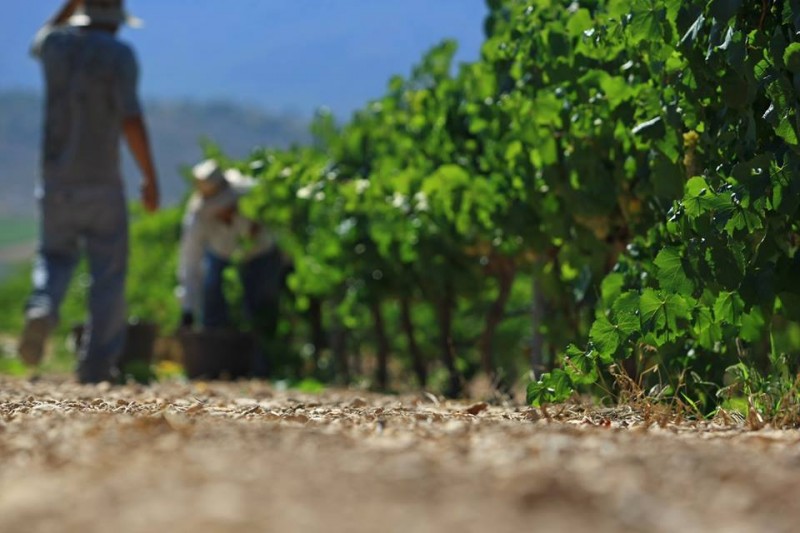 Start to research the wines of Yecla and there are two words which recur again and again; Monastrell and Castaño.
Start to research the wines of Yecla and there are two words which recur again and again; Monastrell and Castaño.
Bodegas Familia Castaño is synonymous with wine production in Yecla, and the family was instrumental in promoting new techniques and innovation when it became the first bodega to make the transition from bulk wine sales to bottled wines, a position it has maintained since with continued innovation and investment.
D.O. Yecla
Yecla is the only DO (appellation of origin) in the Murcia Region which incorporates just one single municipality; that of Yecla, the northernmost in the Región de Murcia, covering 607 square kilometres.
The DO was first granted in 1975, although wine has been produced in this area for thousands of years. The Phoenicians traded wines produced on what is now Spain as far back as 1100BC and the Romans exported substantial quantities of wine from Spain throughout the Empire. Amphorae from Spain have been found across France and Spanish wine was even exported to Roman soldiers guarding border settlements in modern-day Britain.
Ample evidence of Roman occupation can be seen in Yecla today, with a stretch of the Vía Augusta, the main Roman communications route running to France and Rome, running through vineyards owned by this family.
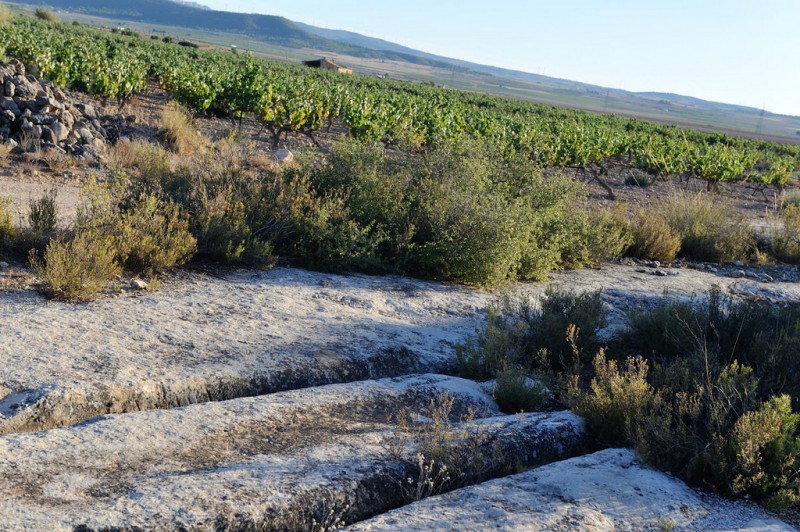
Tastings are sometimes held among the vines alongside the Vía Augusta, and not without good reason is one of the most emblematic wines of this bodega named Hécula, the Roman name for Yecla.
Although it is not known whether renowned Roman writers were offered Yecla wine there is certainly plenty of comment about Spanish wine in the writings of Pliny the Elder and Martial, although Ovid maintained that some Spanish wine was good only for “getting your mistress drunk”.
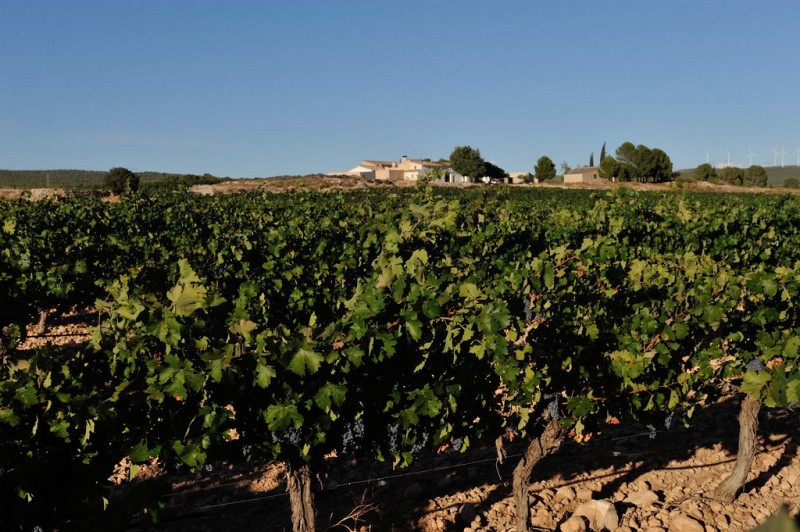
The vineyards of Bodegas Familia Castaño
Yecla has two areas of vine cultivation; Campo Arriba (the high fields) and Campo Abajo (the low fields), each with distinct soil conditions and climatic variations.
Campo Arriba is in the north of the municipality at 700-800 metres above sea level, and offers drier conditions, baking in the summer and freezing in the winter, as temperatures fluctuate from -6ºC in the heart of the winter to 40 ºC in summer. The soil is around 70% limestone, 15% sand and 15% clay, the lack of water and organic sediment making it home to some of the oldest Monastrell vines in the Castaño stable.
Other plots lie in Campo Abajo, which offers soils with a higher percentage of humus and organic matter: 40% limestone, 50% clay and 10% sand.
Bodegas Familia Castaño owns nearly 600 hectares of vineyards with plots in both areas of the municipality. The age of vines and the varieties grown provide a palette from which to blend and paint their wines. Some areas are dedicated to old vines and others to experimental plots of new varieties.
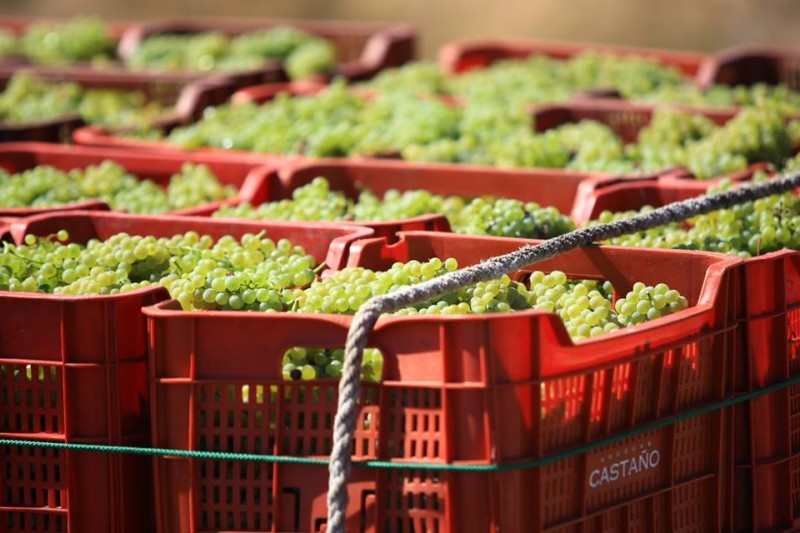
The main plots currently under cultivation are:
LAS GRUESAS in the far north. 160 hectares, limestone-dominated soil, principally used for Monastrell and Garnacha Tintorera, but also a smaller quantity of Merlot, Cabernet Sauvignon, Syrah, Cabernet Franc, Chardonnay, Sauvignon Blanc and Garnacha Tinta.
EL ESPINAL at lower altirude, 88 hectares with predominantly clay soil and good water retention. The plot is home to the experimental vineyards which contain 16 different varieties, and focuses on producing the stars of the future. The plot alreaddy produces a variety of grapes today and currently yields Monastrell, Cabernet Sauvignon, Merlot, Syrah, Macabeo, Chardonnay and Tempranillo.
POZUELO in the north-west of the municipality. Predominantly limestone, home to a mixture of Monastrell, Garnacha Tintorera, Merlot, Cabernet Sauvignon, Syrah, Macabeo and Tempranillo, covering an area of over 140 hectares.
ARABÍ, located on harsh, dry land, at the foot of Monte Arabí, planted only with the King of grapes within this municipality, the hardy, drought-resistant Monastrell. 25 hectares of Monastrell, with low -density, low-yield vines.
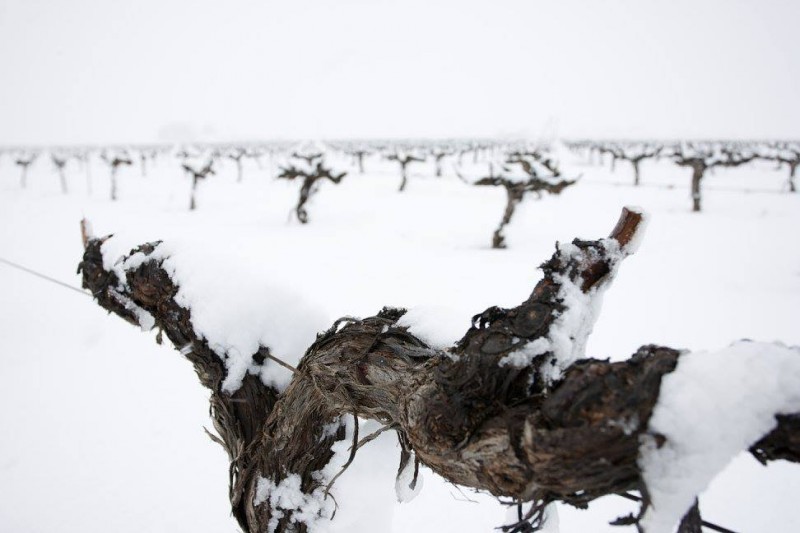
CASA MARTA, 9 hectares of dry, stony land capable of supporting nothing other than drought–resistant, deep-rooted Monastrell.
HOYA MUÑOZ, where Monastrell is again the only vine capable of withstanding the dry conditions at the foot of Monte Arabí. A small 2-hectare plot dedicated only to Monastrell.
LAS GATERAS, more forgiving imestone soil in 36 hectares in the north-west of Yecla, a mixture of Monastrell, Garnacha Tintorera and Syrah.
CASA IGARZA, more limestone soil at a higher altitude with 14 hectares, yielding some of the most important white grapes: floral Macabeos and fruity Moscatels.
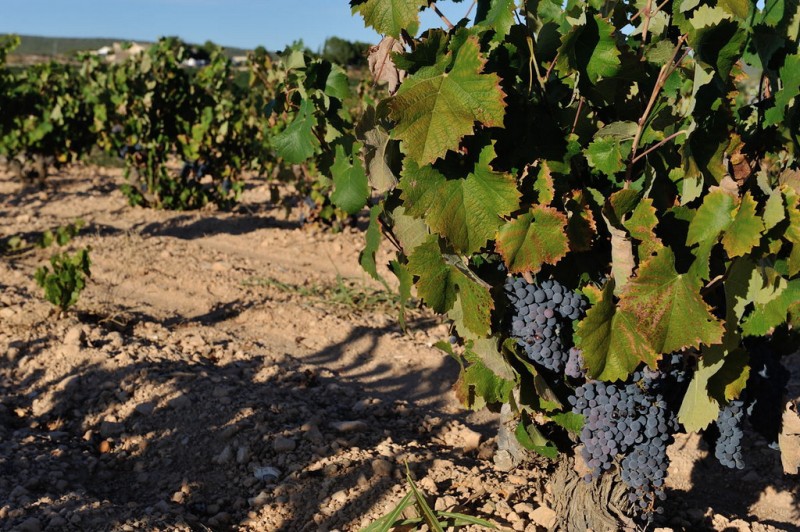
The Familia Castaño
Castaño is the Yeclan name seen most frequently winning prizes at wine awards worldwide and Castaño wines can also be found in many bodegas and good restaurants across Murcia. Prices are reassuringly modest for the quality of wine purchased.
The shop attached to the bodega is open for general purchases and also runs special offers throughout the year, as well as a free delivery service within Spain for orders over 60 euros.
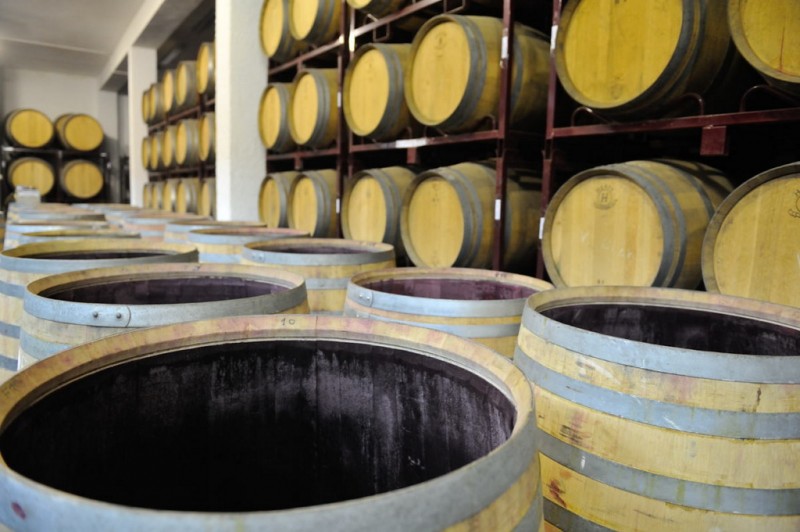
The wines of Bodegas Familia Castaño
Casa Cisca: 100% Monastrell, aged in oak for 16 months. Multi prize-winning wine.
Casa de la Cera: 50% Monastrell, 50% Garnacha Tintorera, Cabernet Sauvignon, 20 months in new French and American oak barrels of 500l.
Castaño GSM: 20% Garnacha Tintorera, 40% Syrah, 40% Monastrell. 4 months in oak barrels, 80% French, 20% American.
Hécula Monastrell: Probably the best-known bottle of wine produced by Castaño, widely available in good bodegas and a superb red. Hard to find a better Monastrell in this price bracket. 100% Monastrell. 6 months in oak (80% French, 20% American of which 50% are new).
Castaño Colección: 70% Monastrell, 30% Cabernet Sauvignon, 10 months in oak barrels, divided 80% French and 20% American of which 60% are new.
Santa: 90% Monastrell, 10% Garnacha Tintorera, with 10 months in French and American oak.
Castaño Dulce: 100% Monastrell. Intense sweet wine with a pleasant lingering backbite and profound notes of autumn fruits, blackberries, figs and blackcurrants. Deep-lodged flavour from prolonged cool maceration. Perfect as an aperitif, or post-meal with nuts and cheese. Ignore notes and try cool as aperitif.Remains Ed's favourite sweet Monastrell after sampling many.
Olivos de Castaño: Extra virgen olive oil coupage produced by the family from its own olive trees. The main variety is Cornicabra, blended with Picual and Royal to create a smooth, but piquant olive oil, which captures the green freshness of piqual and blends it with the sweetness of Cornicabra.
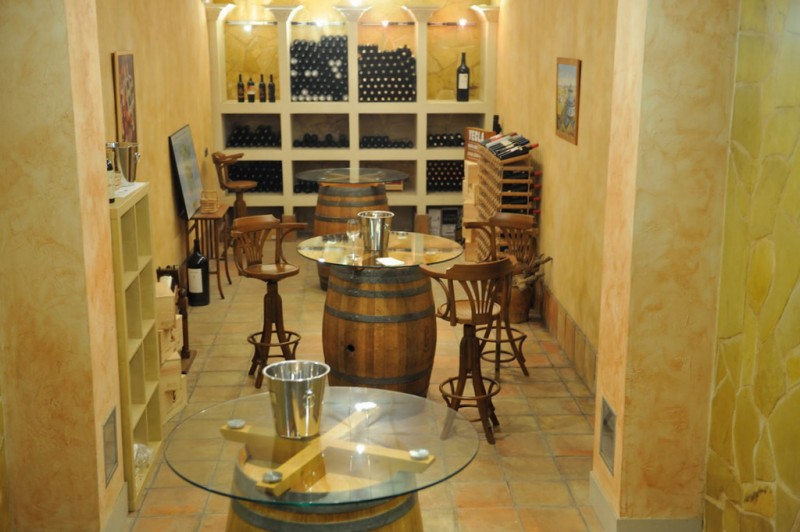
Castaño
Castaño Macabeo Chardonnay: 50% each of Macabeo and Chardonnay to produce a delightfully light white wine combining both notes of green fruit with with a summer freshness.
Castaño Rosé; Young rosé made with 100% Monastrell.
Castaño Red: 100% Monastrell, young, fresh red.
Organic
A range produced exclusively using organic means. Dood solid collection and very well-priced.
Monastrell; 100% Monastrell, a young organic wine, no aging. Great fresh young Monastrell:
Monastrell ecológico barrica, barrel aged. 2014 barrica. 100% Monastrell aged in oak for 6 months.
Macabeo Organic: 100% Macabeo. A charming, fresh Macabeo, pale yellow, green fruit notes, perfect summer wine with zingly fruitiness, but doesn´t overpower the palette.
Dominio Espinal
Espinal Macabeo: 100% Macabeo. Young vines.
Espinal Rosé: 100% Monastrell young rosé.
Espinal Red: 85% Monastrell, 15% Syrah, just one month in oak barrels.
Espinal Selección: 80% Monastrell, 10% Cabernet Sauvignon, 10% Syrah, aged for four months.
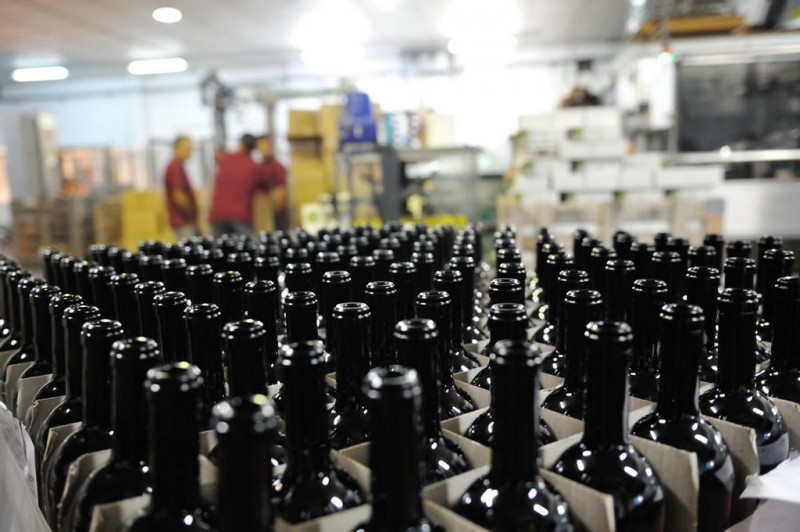
VISITING BODEGAS CASTAÑO
Enoescapada Castaño
A 90-minute tour on weekdays for a minimum of 2 people, beginning at 11.30. Includes a guided tour of the production facility and a tasting of wines and cheeses along with the "Olivos de Castaño" extra virgin olive oil. On Saturdays the minimum group size is 12 people.
Enoescapada Monastrell
A two-and-a-half-hour visit on weekdays and Saturdays at 10.30 with minimum group size of 4 except on Saturdays (12). The tour includes some of the vineyards, the production facilities, tasting of 4 wines with locally sourced products and the "Olivos de Castaño" extra virgin olive oil.
Enoescapada Maridaje
A complete 5-hour experience including all of the above plus lunch in the private dining room with an exclusive menu for all the family. The tour is available every day except on Sundays for a minimum group size of 12.
In addition, special events are held periodically throughout the year: keep an eye on Bodegas Castaño’s social media accounts for details.
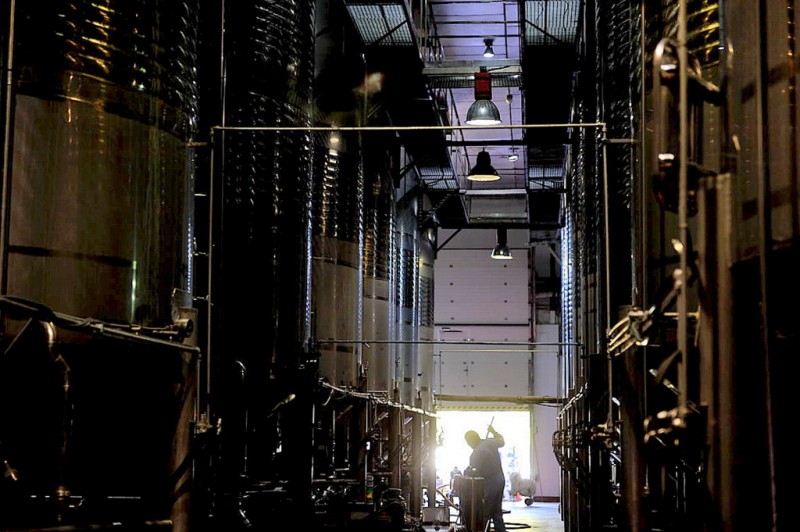
Onsite shop
Bodegas Castaño runs a full online shop, offering free delivery on orders over 60 euros: bodegascastano.com
The bodega shop is also open for direct sales:
Monday and Wednesday 10.30 to 14.00 and 16.30 to 19.00.
Tuesday, Thursday and Friday 10.30 to 14.00 and 16.30 to 19.30.
Saturday 10.00 to 14.00.
Telephone 968 791604
Contact
Address: Carretera de Fuente-Álamo, 3, 30510 Yecla (Murcia) (click for map)
Telephone: 968 791115
Further information can also be found at www.rutadelvinoyecla.com.
If visiting Yecla don’t forget to make sure your first port of call is the tourist office (Plaza Mayor, 1, telephone 968 754104, email turismo@yecla.es).
For more local events, news and visiting information go to the home page of Yecla Today.
In early 2025, due to renovation work at the usual office, the service is located on the other side of the Plaza Mayor at Calle Epifanio Ibáñez nº 2 (click for map).
 Yecla is a large municipality in the north of the Region of Murcia, home to just under 35,000 people, and these days is best known for its wines, which enjoy Denomination of Origin status, and its furniture production, which has its origins in the abundance of pine trees on the mountainsides and the high plateaux.
Yecla is a large municipality in the north of the Region of Murcia, home to just under 35,000 people, and these days is best known for its wines, which enjoy Denomination of Origin status, and its furniture production, which has its origins in the abundance of pine trees on the mountainsides and the high plateaux.
 While visitors in the 21st century may be attracted primarily by wine tourism, the town (or city, as it was proclaimed in 1878) also has a wide historical, cultural and natural heritage, and an identity quite different from the coastal areas of the Region of Murcia. For this reason it is often grouped together with its neighbour and fellow wine-producing area Jumilla as part of the Altiplano area.
While visitors in the 21st century may be attracted primarily by wine tourism, the town (or city, as it was proclaimed in 1878) also has a wide historical, cultural and natural heritage, and an identity quite different from the coastal areas of the Region of Murcia. For this reason it is often grouped together with its neighbour and fellow wine-producing area Jumilla as part of the Altiplano area.
Yecla borders with Castilla-La Mancha and the Region of Valencia and is closer to Alicante coastal areas than much of Murcia. These visitors come to see the historic old town itself - an atmospheric and interesting place, crammed full of history - the natural beauty of Monte Arabí, with stunning views for those who enjoy the outdoors, the gastonomy and of course the wine route.
 Yecla boasts cave paintings from 10,000 years ago in Monte Arabí, a Bronze Age settlement at El Arabilejo, Iberian remains in El Pulpillo and a Roman administrative centre at Los Torrejones as well as the remnants of the 11th century Moorish castle on the hill behind the town. More modern (and complete) testimony to the past are the buildings in the town centre, which include the grandiose Basílica de la Purísima, with its striking blue dome, the archaeological museum and the attractive Plaza Mayor, where the 16th century Town Hall stands alongside the Renaissance Casa de los Alarcos, the clock tower and the old grain store.
Yecla boasts cave paintings from 10,000 years ago in Monte Arabí, a Bronze Age settlement at El Arabilejo, Iberian remains in El Pulpillo and a Roman administrative centre at Los Torrejones as well as the remnants of the 11th century Moorish castle on the hill behind the town. More modern (and complete) testimony to the past are the buildings in the town centre, which include the grandiose Basílica de la Purísima, with its striking blue dome, the archaeological museum and the attractive Plaza Mayor, where the 16th century Town Hall stands alongside the Renaissance Casa de los Alarcos, the clock tower and the old grain store.
 The tourist office holds a full selection of leaflets, maps, pre-planned routes, accommodation and restaurant options and information about visiting Yecla for both individuals and groups.
The tourist office holds a full selection of leaflets, maps, pre-planned routes, accommodation and restaurant options and information about visiting Yecla for both individuals and groups.
There is parking close to the tourist office, although those driving to Yecla for the first time are advised to park in Calle Perales.
For further information go to the home page of Yecla Today.
Opening hours:
Tuesday to Friday 8.00 to 15.00
Saturdays 10.30 to 14.00 and 17.00 to 19.30.
Public holidays 10.30 to 14.00
Click for map, Yecla tourist office